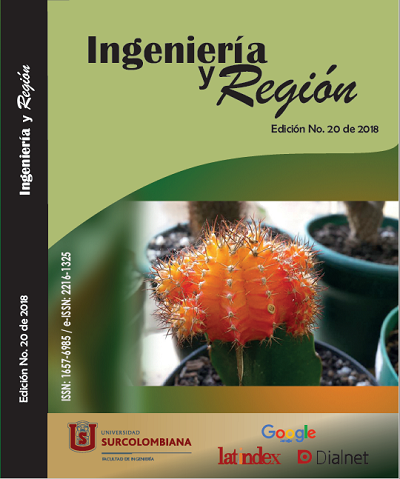Chemical characterization of Coco Fiber (Cocus nucifera L.) from Mexico using Infrared Spectroscopy (FTIR)
##plugins.themes.bootstrap3.article.main##
There is a growing interest in products with less environmental impact, this makes the use of natural fibers a viable alternative. The use of materials of biological origin is increasing in an attempt to reduce the amount of thermoplastic polymers from non-renewable sources. In this framework, the work characterizes the chemical characterization of coconut fiber (Cocus nucifera L.), by means of infrared spectroscopy (FTIR), and the spectra of the fibers of coconut, from two important growing sites, the Acapulco and San Jerónimo de Juárez regions, in the state of Guerrero, Mexico, the results obtained are compared with other spectra of other natural fibers, due to the high content of lignin, properties are attributed viscoelastic, by which it is inferred that when the fibers are subjected to a compression load or an impact force, the amorphous region (lignin) functions as a buffer and is resilient to the applied phenomena, a desirable characteristic in packaging materials, this proves that the coconut fiber with natural binder, could be a proposal to be used as packing material in packaging, the data corroborate a high percentage of cellulose and lignin present in the samples studied.
Downloads
##plugins.themes.bootstrap3.article.details##
Bhattacharyya, S. K., Paul, N. B., 1980. Durability of long vegetable fibers. IndianTextileJournal91,75–79. IndianTextileJournal, 91,75-79.
D’Lemos, A. L., Prestes-Pires, P. G., Dealbuquerque, M. L., Botaro, V. R., Paiva, J. M. F., Domingues-Junior, N. S., 2017. Biocomposites reinforced with natural fibers: thermal morphological characterization. Materia. DOI: 10.1590/S1517-707620170002.0173
Guedes, R. I., Mulinari, D. R., 2014. “Caracterización mecánica de compuestos de PBED reforzados con fibras de palma. Cadunos Unifoa, Edición Especial del curso de maestría profesional en materiales
Padilla, E. R. D., Pires, I. C. S. A., Yamaji, F. M., Fandiño, J. M. M., 2016. Producción y Caracterización Físico-Mecánica de Briquetas de Fibra de Coco y Paja de Caña de Azúcar. Revista Virtual de Química, 13. DOI: 10.21577/1984-6835.20160095
Reddy, N., Yang, Y., 2015. Innovative Biofibers from Renewable Resources. Berlín Heidelberg: Springer.
Rosa, M. F., Medeiros, E. S., Malmonge, J. A., Gregorski, K. S, Wood, D. F, Mattoso, L. H. C, Glenn, G., Orts, W. J., Imam, S. H., 2010. Cellulose nano-whiskers from coconut husk fibres: Effect of preparation conditions on their termal and morphological behavior. Carbohydrate Polymers, 81,83-92. https://doi.org/10.1016/j.carbpol.2010.01.059
Sengupta, S., Basu, G., 2017. Properties of coconut fiber. Kolkata, India: Elsevier ICAR-National Institute of Research on Jute & Allied Fibre Technology. doi:10.1016/B978-0-12-803581-8.04122-9
Silverstein, M. R., et al., 1994. Identificação espectrométrica de compostos orgânicos. Rio de Janeiro: Libros Técnicos y científicos.
Venkatachalam, N., et al., 2016. Effect of Pretreatment Methods on Properties of Natural Fiber Composites: A Review. Polymers & Polymer Composites, Vol. 24, No. 7, 12.


















